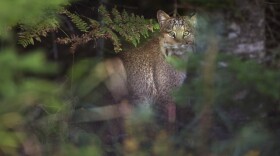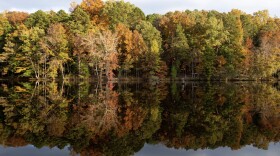-
Dust storms can cause vehicle crashes due to poor visibility, damage crops and also carry diseases. And in some parts of the South, the number of dust storms is only increasing.
-
Jacob Soboroff was raised in the Pacific Palisades and reported live from the area as it was devastated by fire in 2025. In Firestorm, Soboroff offers a minute-by-minute account of the catastrophe.
-
Car crashes with wildlife kill about 200 Americans every year.
-
As 2025 winds down, we've been looking at the year's most important stories in areas ranging from politics to art and culture to science.
-
A large stretch of Asheboro forestland home to bobcats and migratory songbirds is now off-limits to development.
-
There's increasing concern about PFAS, the substances commonly called forever chemicals found throughout the environment. Now volunteers in Minnesota are collecting pine needles throughout the state in an effort to help researchers determine how PFAS find their way in water, soil, and air when there seems to be no obvious source
-
First Descents is inviting survivors, caregivers and health care workers to start the new year outdoors at Hanging Rock.
-
Piedmont Land Conservancy Executive Director Kevin Redding shares a few highlights from the nonprofit's 2025 preservation efforts.
-
To deal with smog in New Delhi, authorities have taken unpopular steps like banning a favourite street snack. Critics say it's performative.
-
Household waste increases by 25% between Thanksgiving and New Years. Rules vary by municipality on what you can recycle and what needs to go into the trash.
-
The U.S. is forecast to add a lot less power from renewables than analysts previously expected. The potential slowdown comes as electricity demand is rising faster than it has in decades.
-
Fast-fashion brands have only upped the production with ultra-fast fashion garments, made in as little as a week, full of plastics and short-lasting, now accounting for up to a third of the entire industry.






